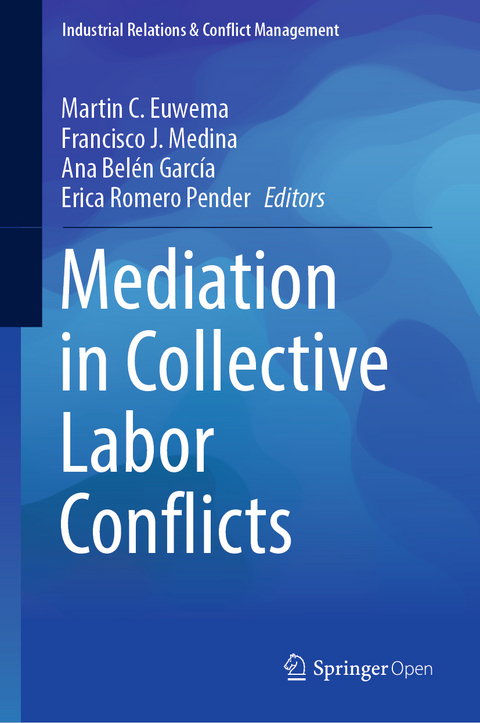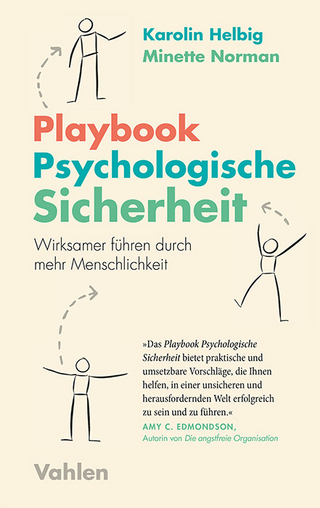
Mediation in Collective Labor Conflicts
Springer International Publishing (Verlag)
978-3-319-92530-1 (ISBN)
This open access book opens up the black box of mediation in collective conflicts through the analyses and comparisons of various systems. Mediation and related third party interventions such as conciliation and facilitation are discussed as effective prevention and regulation tools for different types of collective labor conflicts. These interventions fit in a new developed five-phase model of collective conflicts in organizations, going from capacity building in latent conflicts, through conciliation, mediation and arbitration in escalating phases, to rebuilding of trust after hot conflicts. The authors promote understanding and discussion with regards to labor mediation systems, presenting comparative research on the perspectives of mediators and users of mediation. This book describes and analyses laws, regulations and practices of mediation in seventeen countries, with a relative strong emphasis on Europe. Part 1 presents theoretical frameworks on conciliation and mediation in collective labor conflicts. Part 2 presents regulations and practices in 12 European countries: Belgium, Denmark, Estonia, France, Italy, Poland, Portugal, Spain, The Netherlands, and the United Kingdom. Part 3 discusses mediation in these collective conflicts in Australia, China, India, South Africa and the USA. Part 4 offers conclusions and ways forward. This book offers analyses, good practices and developments for third party intervention in collective labor conflicts in global and local changing environments. This book is a must-read for policy makers, , social partners at different levels, as well as scholars and practitioners in industrial relations, human resources management and conflict management, particularly conciliators and mediators.
Martin Euwema: Martin Euwema is full professor for Organizational Psychology at the University of Leuven, Belgium, chair of the research group O2L (Occupational and Organizational Psychology and Professional Education), and co-director of the Leuven Centre for Collaborative Management. Martin is past-president of the International Association for Conflict Management (IACM). His research interests are leadership, HRM and industrial relations, conflict management and mediation. Martin has extensive experience as consultant and mediator in organizational conflicts. Francisco J. Medina: Francisco J. Medina is professor of Social and Organizational Psychology and Dean of the Faculty of Psychology at the University of Seville (Spain). He is co-editor of the Journal of Work and Organizational Psychology and member of the academic chair of the Doctoral Program on Psychology of Human Resources between the University of Seville and the University of Valencia. Francisco is chair in Spain of the EUROPSY certificate in Work and Organizational Psychology. He collaborates with the Ombudsman office in Andalusia and with the Andalusian Mediation System (SERCLA) in the improvement of the mediation. Ana Belén García: Ana Belén García is a researcher at KU Leuven and the University of Seville in the department of Work and Organizational Psychology. Her focus is on conflict management in organizations. After studying psychology at the University of Seville, she obtained her MSc at Maastricht University in the specialization of Work and Organizational Psychology. She was coordinator of two European research projects on industrial relations, including a project on mediation in collective organizational conflicts in 12 European countries. She holds a PhD in Psychology from the University of Seville and KU Leuven exploring conflict management strategies in collective negotiations in organizations. Ana Belén García is also a registered mediator. Erica Pender: Erica Pender is a researcher at KU Leuven and the University of Seville in the department of Work and Organizational Psychology. Her focus is on the role of trust in social dialogue. After studying psychology at the University of Seville, she obtained her MSc at Maastricht University in the specialization of Work and Organizational Psychology. She was coordinator of two European research projects on industrial relations, including a project on mediation in collective organizational conflicts in 12 European countries. She holds a PhD in Psychology from the University of Seville and KU Leuven focusing on trust and trustworthiness between employee representatives and managers. Erica Pender is also a registered mediator.
Part I: Mediation in collective labor conflicts: opening the black box.- Chapter 1. Introduction chapter (Ana Belén García).- Chapter 2. How to describe different mediation systems and practices: 3-R model to describe and analyze mediation in collective organizational conflicts, as well as the 4 phases model? (Erica Pender )- Part II: Mediation in collective labor conflicts: systems and practices in Europe.- Chapter 3. Mediation in Belgium (Tijs Besieux).- Chapter 4. Mediation in Denmark (Hans Jurgen Limborg).- Chapter 5. Mediation in Estonia (Mare Teichmann).- Chapter 6. Mediation in France (Aurélien Colson).- Chapter 7. Mediation in Germany (Klaus Harnack).- Chapter 8. Mediation in Italy (Andrea Caputo).- Chapter 9. Mediation in the Netherlands(Katalien Bollen).- Chapter 10. Mediation in Poland (Barbara Kozusznik).- Chapter 11. Mediation in the UK (Kristina Potocnik).- Chapter 12. Mediation in Romania (Dragos Iliescu).- Chapter 13. Mediation in Spain (Francisco José Medina).- Chapter 14. Comparative analysis of Mediation in Europe(Patricia Elgoibar).- Part III: Mediation in collective labor conflicts: systems and practices globally.- Chapter 15. Mediation in India (Ernesto Noronha).- Chapter 16. Mediation in China (Wei Huang).- Chapter 17. Mediation in the USA (Stephen).- Chapter 18. Mediation in Nigeria (Cyriacus Ngirwa).- Chapter 19. Mediation in Australia (Mark Bray).- Part IV: Mediation in collective labor conflicts: Trends and Challenges.- Chapter 20. Mediation in collective labor conflicts globally (Francisco José Medina).- Chapter 21. From intervention to prevention in collective labor conflicts (Martin Euwema).
| Erscheinungsdatum | 14.06.2019 |
|---|---|
| Reihe/Serie | Industrial Relations & Conflict Management |
| Zusatzinfo | X, 339 p. 38 illus., 30 illus. in color. |
| Verlagsort | Cham |
| Sprache | englisch |
| Maße | 155 x 235 mm |
| Gewicht | 712 g |
| Themenwelt | Geisteswissenschaften ► Psychologie ► Arbeits- und Organisationspsychologie |
| Medizin / Pharmazie ► Medizinische Fachgebiete ► Psychiatrie / Psychotherapie | |
| Recht / Steuern ► Privatrecht / Bürgerliches Recht ► Zivilverfahrensrecht | |
| Sozialwissenschaften | |
| Schlagworte | Collective Labor Disputes • Conflict Management Systems • Industrial Relations Conflicts • Mediation in Collective Conflict • Mediation Systems • open access • Third Party Intervention in Organizational Conflic • Third Party Intervention in Organizational Conflicts |
| ISBN-10 | 3-319-92530-X / 331992530X |
| ISBN-13 | 978-3-319-92530-1 / 9783319925301 |
| Zustand | Neuware |
| Informationen gemäß Produktsicherheitsverordnung (GPSR) | |
| Haben Sie eine Frage zum Produkt? |
aus dem Bereich


